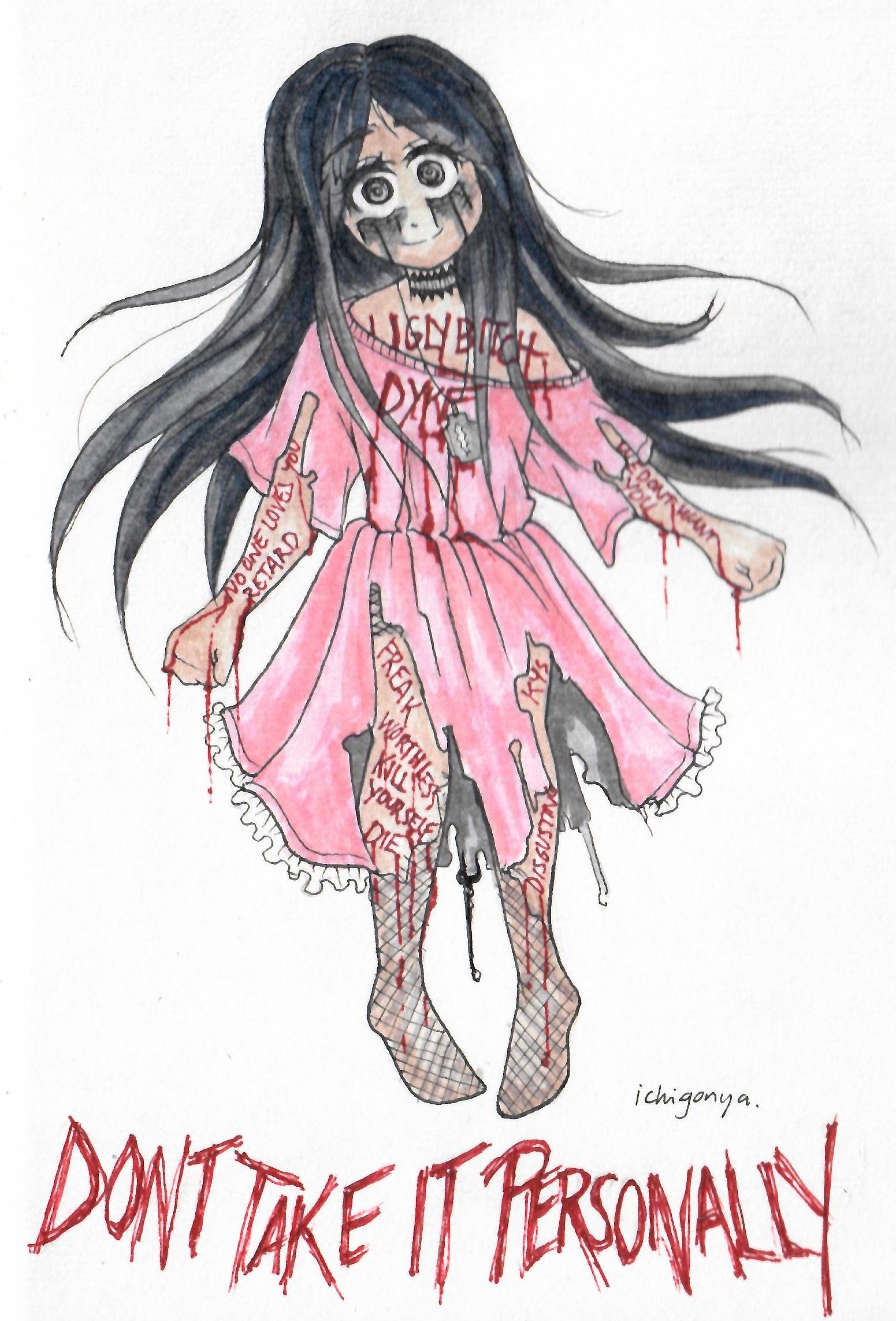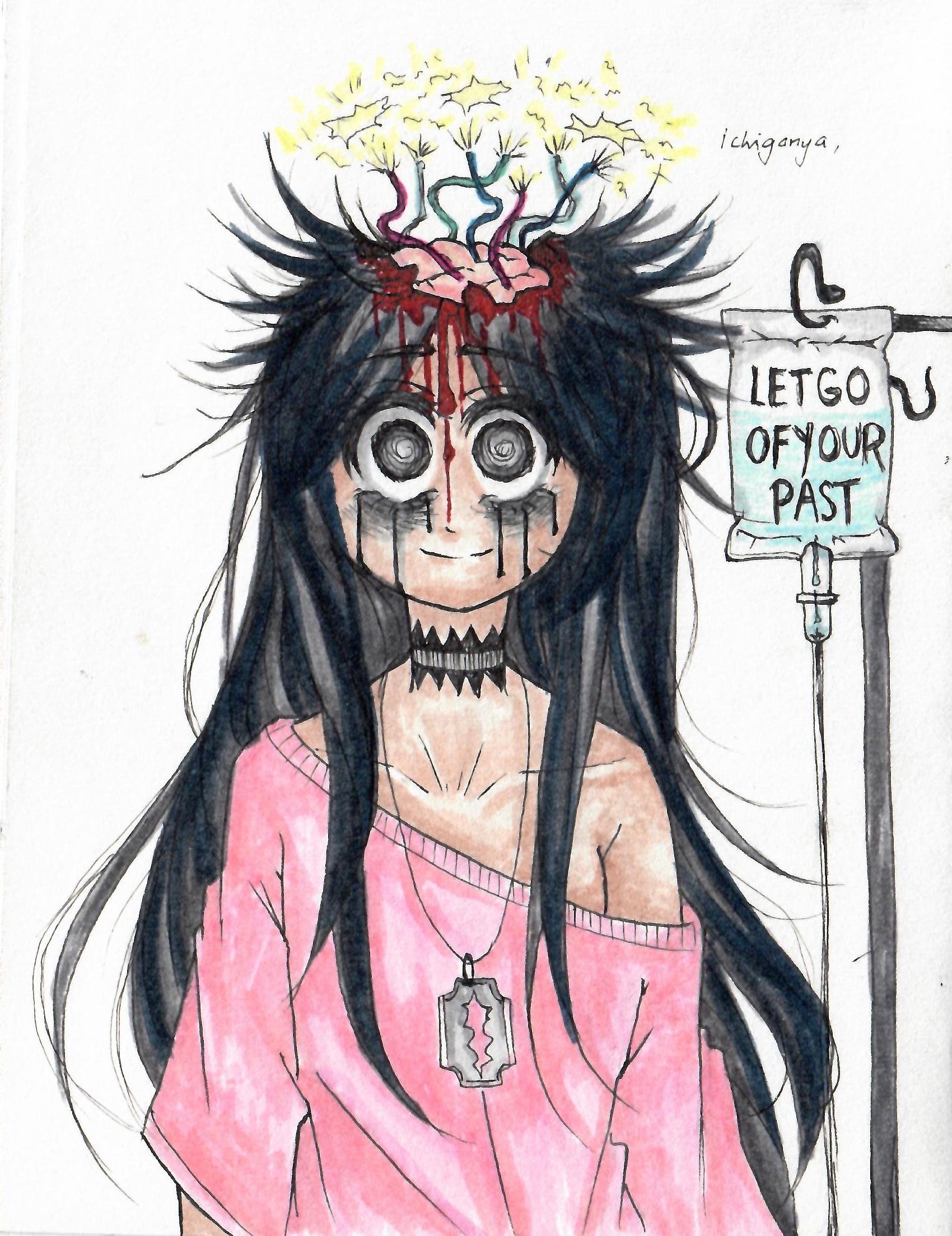The Hurt Once Caused Is The Hurt Of Every Single Day After Today
Trauma survivors are often called things like 'dwellers' by people who don't understand what having mental trauma actually means. "Don't dwell on the past, you should focus on the present!" "I mean yeah, the fact that that happened to you sucks, but why are you so focused on something that is in the past? You can't change it." You know those sentences, you've heard them hundreds of times. The idea that you could still be hurting because of something that happened to you years ago is very foreign to people who've had the fortune of not having to deal with immense amounts of trauma in their childhood. But for some reason, these are also the people who claim to know the most about your situation.
don’t take it personally.
When they aren't downright victimblaming the traumatized, they're treating the post-traumatic symptoms as something that the person themself is responsible for. That it's a conscious decision to stay stuck on events that took place years ago, that you choose to be upset over something that is already in the past. The core problem in this rhetoric is the complete misunderstanding of trauma and how it affects the brain. And for reasons I do not know as of right now, it is very common to have someone tell you "you should just get over it" when your trauma is verbal abuse.
Words can and do hurt, I think that is something we all agree on. Verbal abuse is way more common than people think, and its effects can be as lasting as that of any other form of trauma. A lot of people – especially online – seem to have this misconception that after being abused verbally, you spend your nights crying about the actual things your abusers said to you. Granted, in the context of a flashback, for example, reliving the moment of being verbally attacked does happen, but trauma is so much more than that. So much more complex. It is not just the conscious thinking about the thing that happened, it is engrained into your brain and body.
In everyday language, what we mean by 'trauma' is typically mental trauma. In medicine, however, 'trauma' is a broad term used for all kinds of damage the person has sustained – whether it be a broken arm, a fractured skull, a self-inflicted wound, or being a victim of childhood abuse. Mental trauma is no different from physical trauma in its severity: it affects the person and their well-being just like a broken arm does, but more often than not, it goes a bit deeper than that.
let go of your past.
When we're talking about mental trauma, we're talking about damage that the brain has sustained due to events that have taken place at some point in a person's life. Traumatic situations and events do not only stick with you in a way that you find yourself thinking about them often; they stick with you especially because they have literally altered the way that your brain works.
Telling a trauma survivor to "let go of their past" is exactly the same as telling someone who broke their leg a few months ago to "just get up and start running, it's been like three months". It is to diminish the effect that a past experience has had on the person and their well-being: no matter how long ago it was, sometimes the pain never fully goes away. My mother fractured her kneecap seven years ago; she still can't kneel down on the floor. It's been eight years since the most traumatic period of my life ended; I'm still hurting.
Mental health problems like depression and anxiety are relatively often and openly talked about nowadays, and people are far more aware of them and how they affect the brain and the person themself. Depression is caused by a chemical imbalance in the brain, which can be fixed with anti-depressants – sometimes entirely, sometimes only enough to make the symptoms milder. Trauma, on the other hand, is more like the wires in the brain have been disconnected, torn apart, and then reconnected but not with the one they were supposed to. Trauma changes the way your brain as an organ works, because that is what the Greek word 'trauma' means: 'wound'. And that, is exactly what your brain is – wounded.
My body is shaking,
ichigonya

